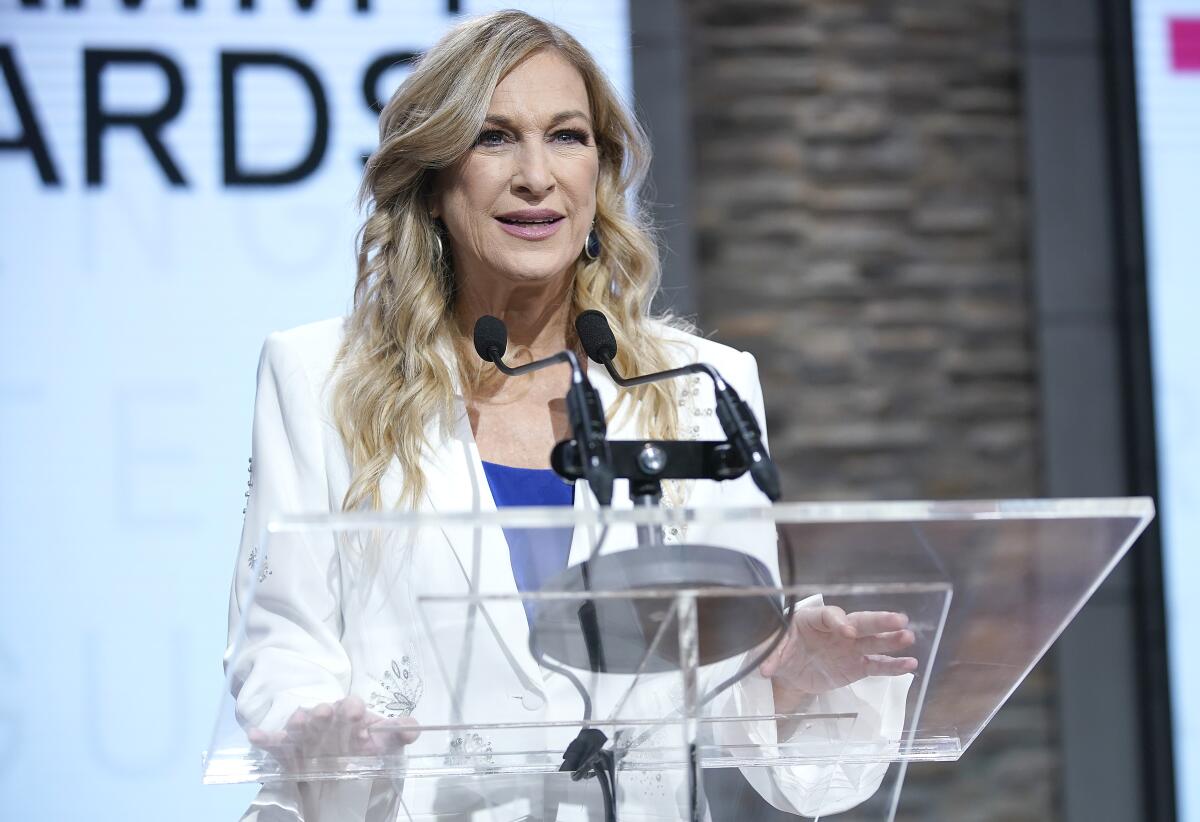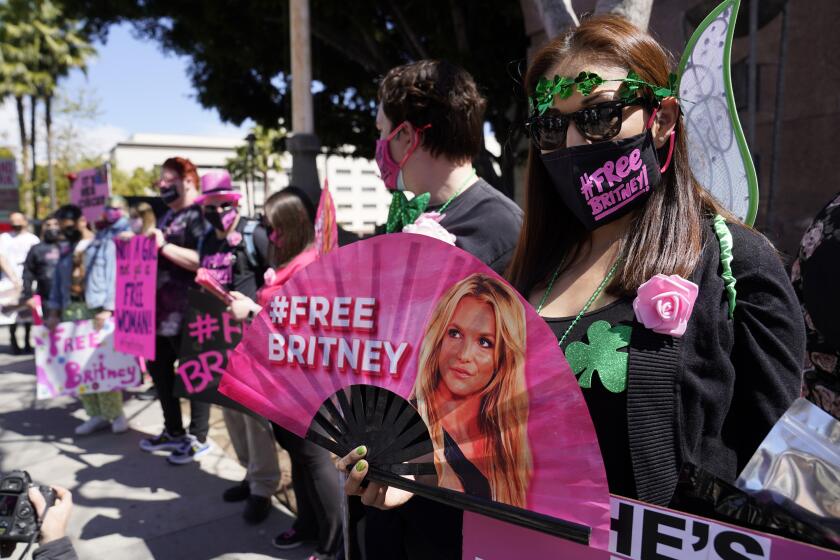The Recording Academy reaches settlement with former CEO Deborah Dugan

- Share via
The Recording Academy and its deposed leader, Deborah Dugan, have reached a settlement ahead of arbitration hearings that were set to begin next month over Dugan’s controversial firing from the organization that presents the annual Grammy Awards.
In a joint statement, the two sides said they’d “agreed to resolve their differences and to keep the terms of their agreement private.” Representatives for each declined further comment.
Dugan, a relative outsider in the chummy world of the academy, was ousted from her position as president and CEO in January 2020, just months after she’d been hired to take over from her long-serving predecessor, Neil Portnow — and just days before that year’s Grammys ceremony was to take place in Los Angeles.
Britney Spears has been a media and pop culture object of derision, pity and indifference to her humanity. On Wednesday, she stood up for herself.
At the time of her dismissal, the academy said Dugan had been accused of mistreating “a senior female member” of the organization. Yet Dugan, who’d been brought in explicitly to improve the Grammys’ troubled reputation regarding inclusion and diversity — in 2018, Portnow was widely criticized for advising women to “step up” if they wanted to be recognized — said she’d been targeted for having raised concerns about the group’s “boys’ club” atmosphere and about a voting process marred by irregularities and conflicts of interest.
Dugan also accused Joel Katz, a well-known music industry lawyer who’d worked for the academy, of sexual harassment and said she’d been told that Portnow had raped a female recording artist. (Katz and Portnow denied the charges.)
This month Dugan’s lawyers said the academy was attempting to break a promise to keep the planned arbitration hearings open to the public; the academy said it had agreed only to make public the results of the arbitration and insisted the hearings should be kept secret to protect unspecified confidential information.
Joni Mitchell’s peers, progeny, admirers and Mitchell herself reflect upon on her classic 1971 album ‘Blue,’ released 50 years ago today.
The settlement with Dugan follows a number of changes to the academy’s increasingly scrutinized innerworkings.
In April the group said it was doing away with most of the anonymous committees that for years shaped nominations for the Grammys — committees many blamed for a mystifying shutout of the Weeknd at this year’s show despite the commercial and critical success of his “After Hours” album and his smash single “Blinding Lights.” (In a statement to the New York Times, the Weeknd called the academy’s move an “admission of corruption” and said he had no plans to lift a previously announced boycott.)
This month the academy announced that Harvey Mason Jr. — who took over from Dugan as the group’s interim president and CEO and was officially named to that role in May — had appointed two co-presidents in Valeisha Butterfield Jones and Panos A. Panay. Butterfield Jones joined the academy last year from Google as the organization’s first chief diversity and inclusion officer, while Panay came from a post overseeing global strategy at Berklee College of Music.
The two co-presidents will assume their responsibilities Aug. 16. The 64th Grammy Awards are scheduled to place Jan. 31 at Staples Center.
More to Read
The biggest entertainment stories
Get our big stories about Hollywood, film, television, music, arts, culture and more right in your inbox as soon as they publish.
You may occasionally receive promotional content from the Los Angeles Times.











